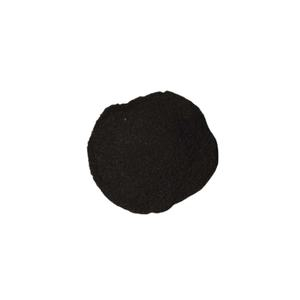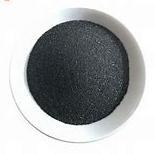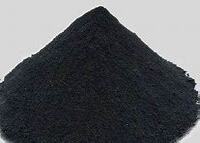High-Quality Silicon Carbide Products | Advanced Ceramic Solutions
PRODUCT PARAMETERS
Description
Overview of Silicon Carbide Powder
Silicon carbide (SiC) powder is a high-performance ceramic material composed of silicon and carbon. Known for its exceptional hardness, thermal stability, and wear resistance, SiC powder is widely used in abrasives, cutting tools, refractory materials, and advanced technological applications like semiconductors and electric vehicle components.
Features of Silicon Carbide Powder
Exceptional Hardness: One of the hardest known materials, second only to diamond, making it ideal for abrasive and cutting applications.
Thermal Stability: High resistance to thermal shock and can withstand extreme temperatures, enhancing its utility in refractory and high-temperature environments.
Chemical Inertness: Resistant to most chemicals, including acids and alkalis, ensuring durability in harsh conditions.
Wear Resistance: Excellent wear resistance properties make it suitable for demanding mechanical applications.
Electrical Conductivity: Depending on the purity and doping levels, SiC can exhibit varying degrees of electrical conductivity, useful in electronics.

(98.5% Sic Black Silicon Carbide Green Silicon Carbide 300 mesh silison carbide powder)
Specifications of 98.5% Sic Black Silicon Carbide Green Silicon Carbide 300 mesh silison carbide powder
This product is 98.5% silicon carbide (SiC) in black and green variants. Both types work for industrial uses. Black silicon carbide has high hardness and thermal conductivity. It resists oxidation and corrosion. Applications include abrasives, refractory materials, cutting tools, and surface treatments. Its toughness suits grinding, polishing, and sandblasting. Green silicon carbide offers higher purity (over 99%). It has sharper edges and better cutting performance. It works for precision tasks like semiconductor processing, fine ceramics, or optical glass polishing. Both types handle extreme heat (up to 1600°C). They maintain stability in high-stress environments.
The 300-mesh silicon carbide powder has a fine particle size. It passes through a 300-mesh sieve (about 50 microns). Uniform particle distribution ensures consistent performance. This powder fits abrasive pastes, coatings, or composite materials. It improves surface finishes in metalworking or stone processing. Mixing it with resins or polymers boosts material strength.
Black silicon carbide costs less. It serves general-purpose grinding and rough surface treatments. Green silicon carbide suits tasks needing precision. It creates smoother finishes but costs more. The 300-mesh powder balances fineness and efficiency. It reduces waste in applications requiring controlled particle sizes.
Silicon carbide’s chemical inertness prevents reactions with acids or alkalis. It lasts longer in harsh conditions. Electrical conductivity varies by type. Black silicon carbide conducts slightly better. Both types aid thermal management in electronics.
The 300-mesh powder is packaged to prevent moisture absorption. Storage guidelines ensure stability. Custom particle sizes or purity levels are available. Testing confirms quality before shipment. Users select based on hardness needs, budget, or application details. Black silicon carbide handles heavy-duty jobs. Green silicon carbide meets high-precision demands. The powder integrates into industrial processes smoothly. Performance depends on correct grade selection.

(98.5% Sic Black Silicon Carbide Green Silicon Carbide 300 mesh silison carbide powder)
Applications of 98.5% Sic Black Silicon Carbide Green Silicon Carbide 300 mesh silison carbide powder
98.5% SiC black silicon carbide and green silicon carbide powders in 300 mesh size serve many industrial purposes. These materials are hard and durable. They work well in abrasive applications. The fine 300 mesh particles create smooth surfaces. Industries use them for grinding, polishing, and sandblasting metals, ceramics, and glass. They remove material efficiently without leaving deep scratches.
Black silicon carbide has high thermal conductivity. It handles extreme temperatures. This makes it suitable for refractory products like furnace linings and kiln furniture. It resists chemical corrosion and thermal shock. Manufacturers mix it with binders to form heat-resistant coatings. These coatings protect equipment in steelmaking and glass production.
Green silicon carbide has sharper edges and higher purity. It performs better in precision tasks. Electronics companies use it to cut semiconductor wafers and polish optical lenses. Its uniform particle size ensures consistent results. The 300 mesh powder is ideal for creating fine finishes on delicate components.
Both types of silicon carbide enhance metallurgical processes. They act as deoxidizers in steel production. They remove impurities and improve metal quality. Foundries add them to molten iron or aluminum to refine grain structures. This increases the strength and durability of cast parts.
The automotive industry relies on silicon carbide powder for manufacturing brake pads and clutches. Its hardness reduces wear and extends product life. It also improves friction performance under high temperatures. Car manufacturers value its reliability in demanding conditions.
Silicon carbide powder is used in ceramics. It strengthens tiles and sanitaryware. The material prevents cracking during firing. Its thermal stability ensures consistent results in kilns.
Waterjet cutting systems use 300 mesh silicon carbide as an abrasive additive. It cuts hard materials like stone and composites quickly. The powder mixes with water to create a high-pressure cutting stream. This method produces precise edges with minimal waste.
The chemical industry benefits from silicon carbide’s inertness. It resists acids and alkalis. Engineers use it in pumps, seals, and reactors exposed to corrosive substances. Its durability reduces maintenance costs.
Silicon carbide powder supports advanced technologies. It appears in solar panel production and semiconductor devices. Its electrical properties make it useful for sensors and high-voltage components. Researchers explore its potential in electronics and energy storage.
These applications show the versatility of 98.5% SiC silicon carbide powders. Their physical and chemical properties meet the needs of multiple sectors. Industries continue to find new uses for this material.
Company Introduction
Welcome to It-Chuiko, a premier international supplier of high-quality silicon carbide powder and silicon carbide ceramics. Our products are renowned for their exceptional hardness, thermal stability, and wear resistance, making them ideal for abrasives, cutting tools, refractory materials, and advanced semiconductor applications. We serve a diverse range of industries, including automotive, aerospace, and electronics, with a commitment to quality and innovation. With state-of-the-art production facilities and rigorous quality control, we ensure that our customers receive superior products tailored to their specific needs. Partner with us for reliable, high-performance materials that drive your business forward.
If you have any questions, please feel free to contact us(nanotrun@yahoo.com).
Payment Methods
T/T, Western Union, Paypal, Credit Card etc.
Shipment Methods
By air, by sea, by express, as customers request.
5 FAQs of 98.5% Sic Black Silicon Carbide Green Silicon Carbide 300 mesh silison carbide powder
What is the difference between black silicon carbide and green silicon carbide? Black silicon carbide contains 98.5% silicon carbide. It is harder and used for materials like glass, stone, or non-metals. Green silicon carbide has higher purity, around 99% or more. It works better for hard alloys, ceramics, or precision tools. Both types serve as abrasives but suit different materials.
What does 300 mesh mean in silicon carbide powder? Mesh size refers to particle fineness. A 300 mesh means particles pass through a screen with 300 openings per inch. This size balances cutting ability and smooth finishes. It is common for polishing, lapping, or coating applications. Finer powders offer smoother results but cut slower.
What are typical uses of 300 mesh silicon carbide powder? It is widely used for grinding, cutting, or polishing hard materials. Examples include metal surfaces, stone, glass, or ceramics. It works in abrasive tools like sandpaper or grinding wheels. It also serves as a filler in refractory materials or coatings to improve heat resistance.
Is silicon carbide powder safe to handle? Direct contact with skin or eyes causes irritation. Wear gloves and goggles when handling it. Avoid inhaling the dust. Use masks and work in ventilated areas. Store it in dry conditions to prevent moisture absorption. Follow safety guidelines on the product label.
How do I choose between black and green silicon carbide? The choice depends on the material and task. Black silicon carbide is cheaper and better for softer materials like glass or plastic. Green silicon carbide costs more but works better for hard, brittle materials like tungsten or ceramics. Check the material hardness and required finish before deciding.

(98.5% Sic Black Silicon Carbide Green Silicon Carbide 300 mesh silison carbide powder)
REQUEST A QUOTE
RELATED PRODUCTS
Black carborundum Black Silicon Carbide Sand for Sandblasting 1000 grit silicon powder silicon carbide powder 129 mesh
Reliable Good Quality Sic Powder Black Silicon Carbide With 99% Purity

